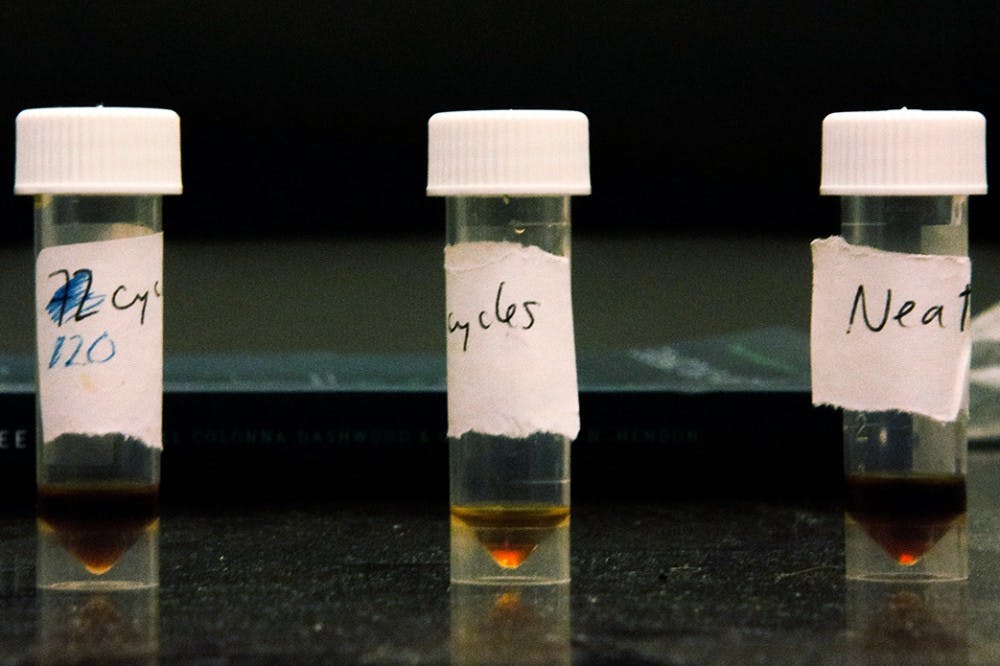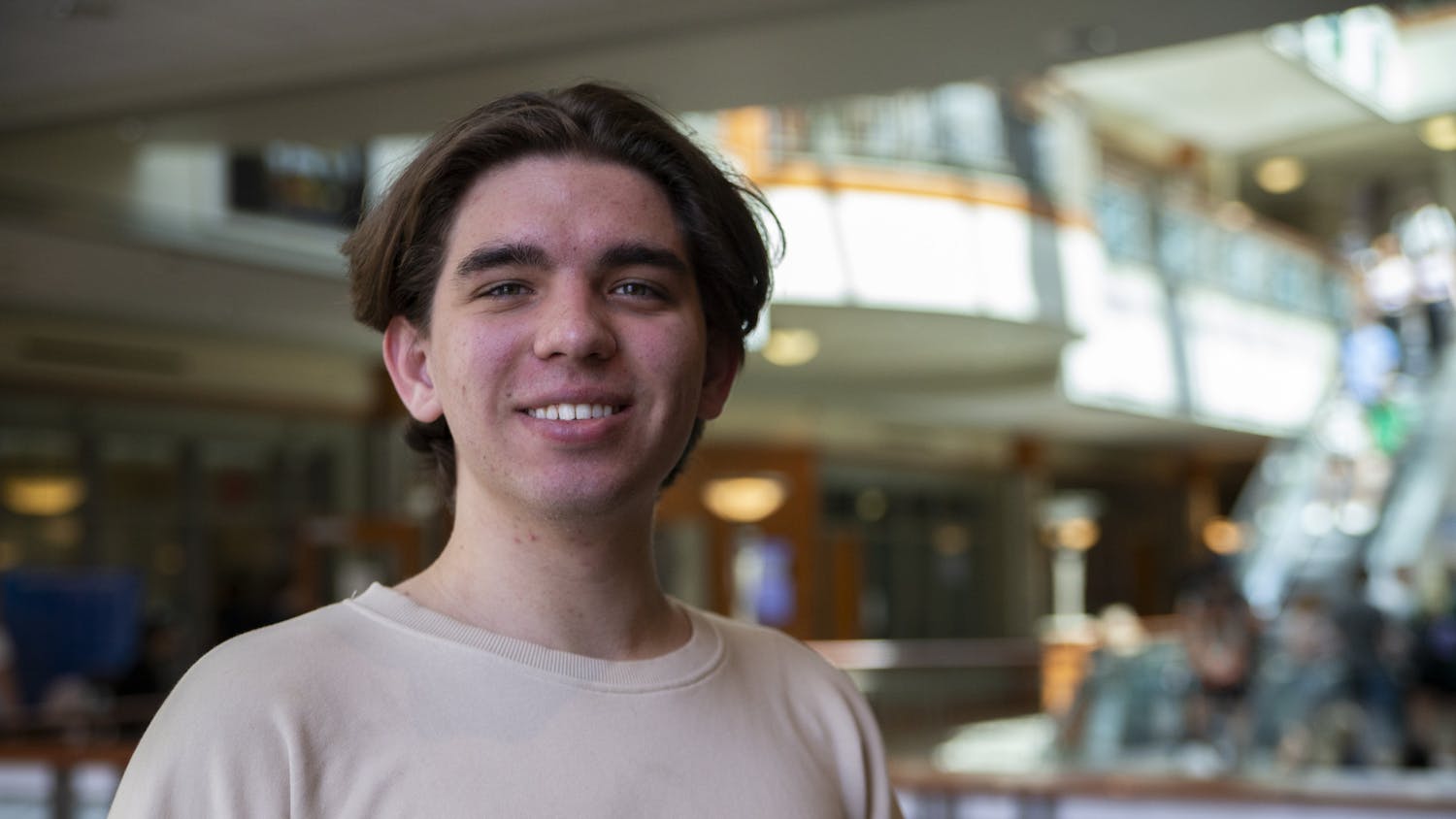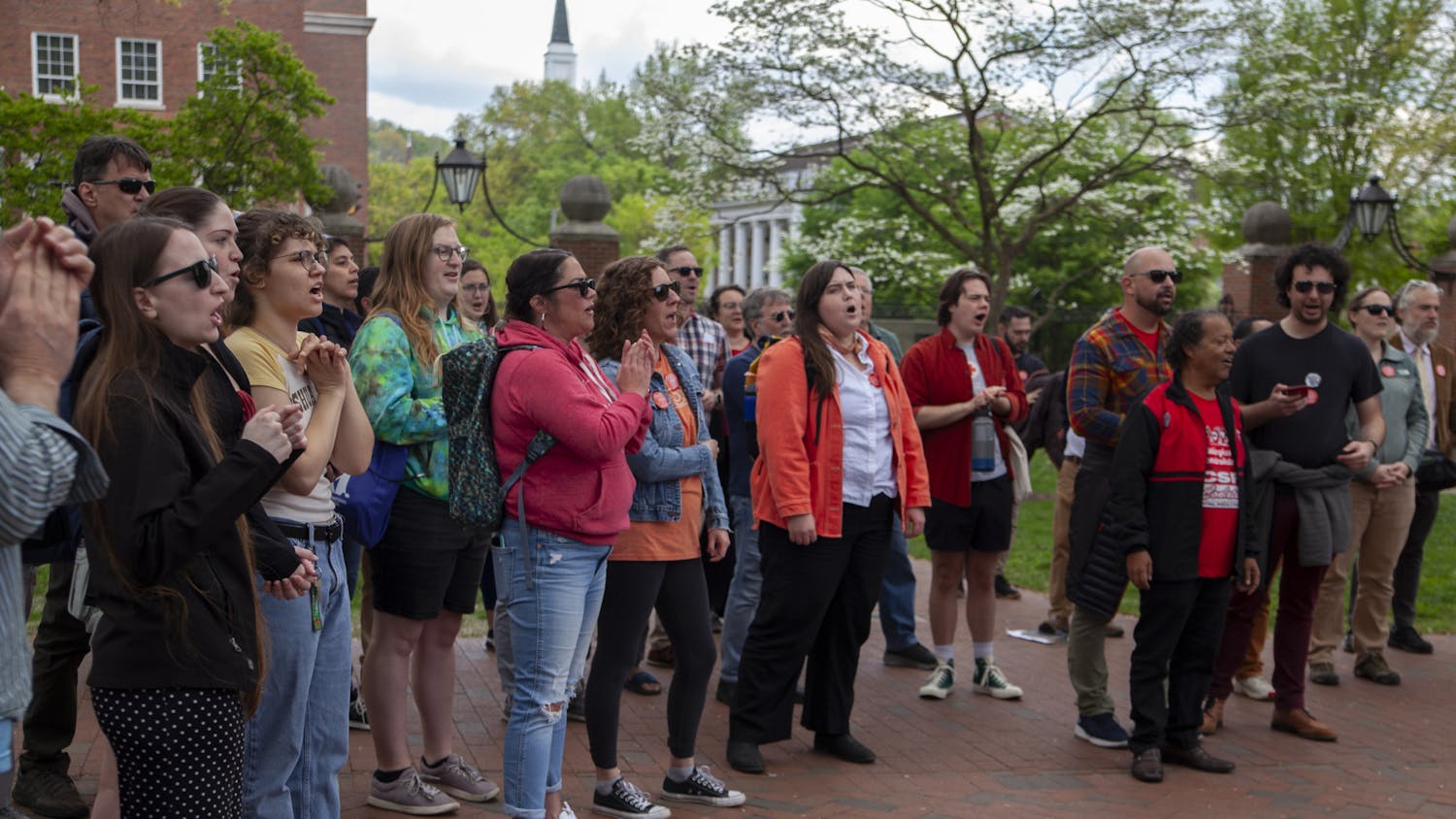In most cases, non-renewable resources are the cheapest way to provide energy to most people, but a recent grant from the Department of Energy to John Staser, an assistant professor in Ohio University's Russ College of Engineering and Technology, might lower the cost of biofuels, which are a cleaner energy source.
The grant, which was awarded in August, totals to about $1.47 million and will go toward researching the uses of lignin waste, a byproduct of turning wood into ethanol in biorefineries. Biorefineries use plant materials and animal waste to create fuel, which can later be turned into energy. Lignin, a component of wood, does not get destroyed during the conversion process.
“Lignin can’t be used to generate the biofuel,” Staser said. “So lignin basically goes through the biorefineries and it comes out the other side as waste stream.”
However, Staser and his team would like to turn lignin into a useful product that could be resold for a profit, reducing the cost of biorefineries.
“We’re trying to develop a process where (biorefineries) can convert lignin to other chemicals that they can sell,” Staser said. “Some people are looking to put chemicals into bioplastics to make bioplastics more rigid and more durable, so if you can break lignin into smaller pieces then you can potentially get a lot of really useful chemicals the industry would like to have.”
The grant money will go toward supplies, testing services and paying students working on the project. The grant money will also be split with the company Hexion, Inc. and the Biorefining Research Institute at Lakehead University in Ontario, Canada.
Once the lignin is broken down, it turns into compounds, which Hexion, Inc. will use to make plastics stronger and more environmentally friendly.
OU will also work on developing a reactor to convert lignin. Lakehead University will work on determining how to integrate those reactors into established biorefineries.
"We want to make the best of our waste, the best thing to do ... is reuse everything," Pete Harrington, an OU biochemistry professor, said. "It's good for industry. It's good for the university because we're developing it. It makes the world a better place."
Brian Mansfield, an undergraduate student involved with the project, said he has spent at least a few hours in the lab every day, working on "selective reduction of lignin."
"I think it's really great, it gives me a lot of good experience," Mansfield, a junior studying chemical engineering, said. "It's stuff you can't really learn in the classroom."






